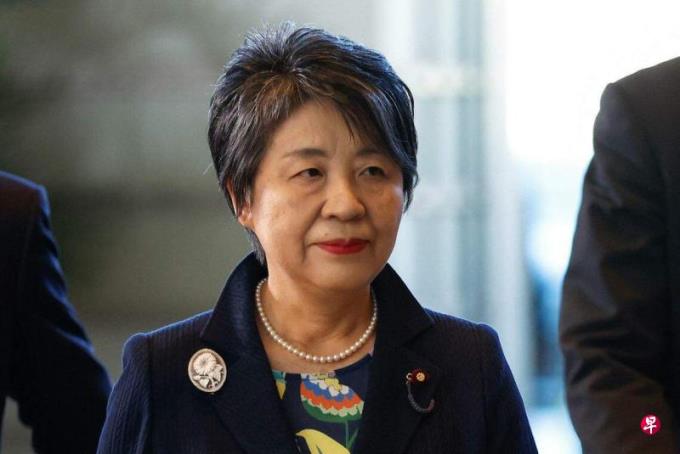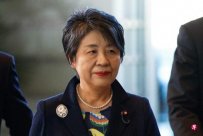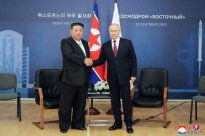
(Tokyo Composite Electric) Japan ’s new foreign minister Uenagawa Yoshiko said that Japan will continue to urge China to take responsible actions while maintaining frank dialogue with China to solve the common challenges of the two countries.
On Thursday (September 14th), the first press conference after taking office shows that Prime Minister Kishida's position has not changed.She said: "We will continue to say what we must say, seek to allow China to act in a responsible manner, but we will continue to talk to them and cooperate with them on common issues."
Shangchuan said that there are many controversial problems between China and Japan to solve it. "I think both parties must strive to build a constructive and stable relationship."
Japan and China ’s sovereignty disputes in Jiange (China’ s Diaoyu Islands) (China ’s Diaoyu Islands), and China and Russia have held joint military exercises near Japan.Japan began to deal with Fukushima nuclear in the water last month, which made China even more dissatisfied, and ordered the ban on imported Japanese aquatic products.
In response to Japan -Russia relations, Uenichuan condemned Russia to invading Ukraine as a riots that shake the foundation of the international order and promised to maintain severe economic sanctions against Russia with members of the Seven Group (G7) and the international community.
She said that Japan will properly respond to the problems faced by Japan and Russia from the perspective of national interests.She shows that it will adhere to the consistent policy of territorial issues and concluding peace treaties in the four northern islands (Russia called the South Qiandao Islands).
Shangchuan is expected to go to New York next week to attend the UN General Assembly and other meetings as a foreign minister.She promises to contribute to the interests of Japan and the world peace.
In response to the Japanese Foreign Minister, the Chinese Ministry of Foreign Affairs, Mao Ning responded at a regular press conference on Wednesday (13th).Benefit.
Analysis: Female leaders are still backward although they increase gender equality
Kishida announced the reorganization of the cabinet on Wednesday, including the replacement of the defense ministers and foreign ministers. At the same time, the number of female ministers increased from two to five, tied to the previous record.Among them, 70 -year -old Uenagawa has been the Minister of Legal Affairs three times, and is the first female foreign minister in Japan in 20 years.
U.S. Ambassador to Japan, Emmanuel, pointed out that for Japan, which is still far behind in the appointment of women as a corporate leader, this cabinet reorganization is "a big step forward."He welcomed Shangchuan as a foreign minister and described her "very capable".
But some analysts believe that the increase in female members of the cabinet may not mean that Japan has made breakthroughs in gender equality.Bloomberg pointed out that, except for Uenagawa and the Minister of Economic Security, the Minister of Economic Security, Gao Shi Miao, the other three female ministers were relatively low -key, and they were responsible for children's welfare policies, disaster area rejuvenation, and local creation.The Minister of Finance and Trade was served by men and still excluded women from the positions of the two are expected to lead to Prime Minister's throne.
The Global Gender Gap report released by the World Economic Forum this year shows that Japan ranks fell in terms of gender equality, ranking 125th in the 146th, and ranked 138th in women's political empowerment.
Most of the Japanese ministers are selected from the members of the Congress, but at the House of Representatives, only 10%of female members.Former Member of the Political Science Professor of Tokyo Waseda University, Nakami Lin Mihiko, said: "In Japanese politics, especially the House of Representatives, women have too few women."
Miura Miri, a professor of political science at Shangzhi University, pointed out that female leaders around the world have been subject to higher standards, which is particularly obvious in Japan.She said: "Women are over -examined. If they make a small mistake, they will suffer huge attacks. If men do the same thing, they will certainly be criticized, but women will be much more criticized."




